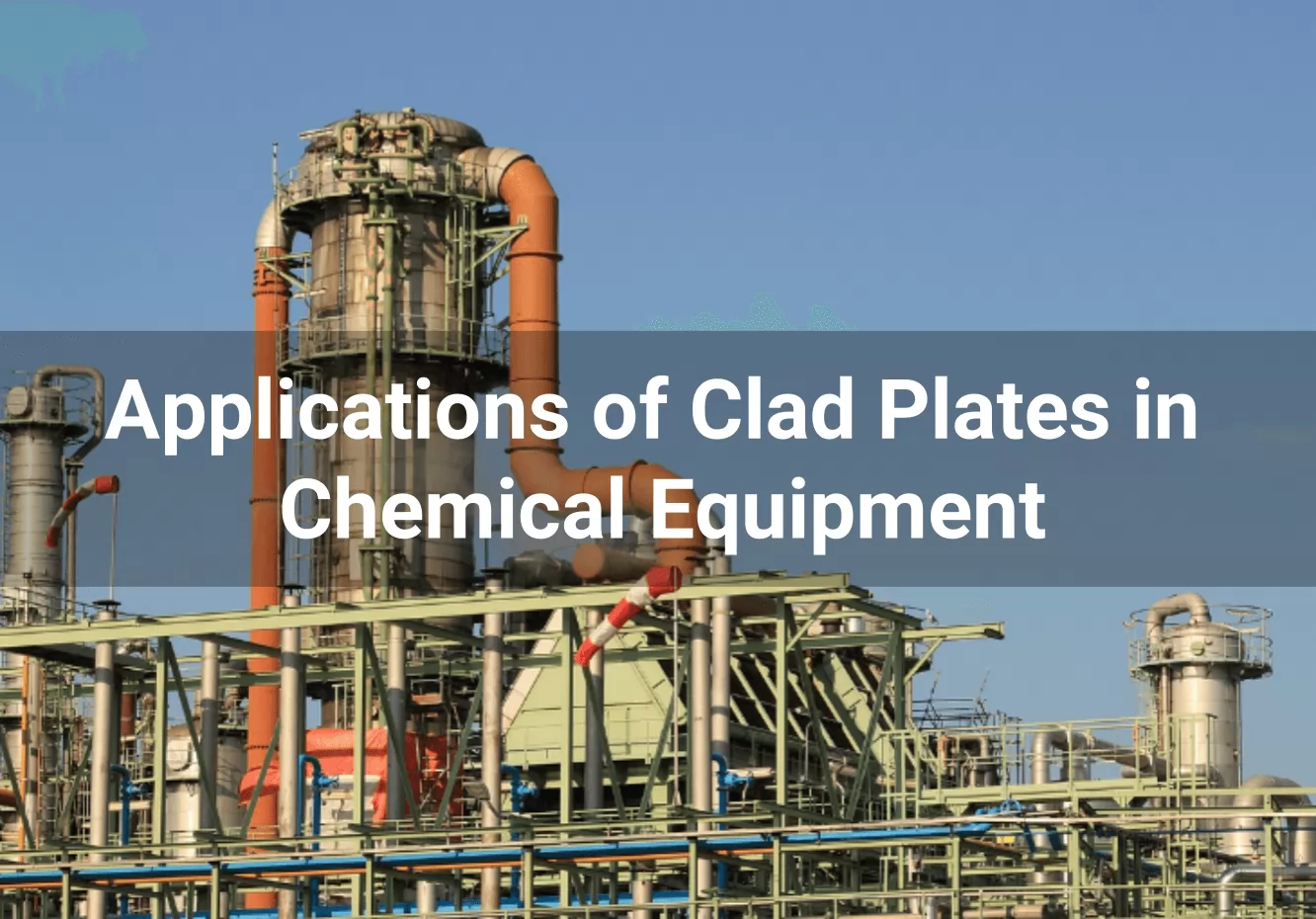


In chemical equipment, the application of clad plates is mainly concentrated in parts that need to resist corrosion, high temperature or other extreme conditions. The following is a summary of these applications:
Tanks storing corrosive chemicals will use,such as 304 stainless steel clad plates,which can resist the corrosion of chemical substances.
Clad plates are commonly used materials due to the high temperature, high pressure and corrosive environment generated by internal chemical reactions.
Such as flanges, Clad Transition Joints, and other clad plate materials, have sealing and corrosion resistance.
Clad plates are widely used in pressure vessels, boilers, heat exchangers, and condensers.
Clad plates have become indispensable in the chemical industry due to their remarkable ability to withstand extreme conditions, including high temperatures, corrosive substances, and high pressures. These composite materials, often used in the construction of storage tanks, reactors, and pressure vessels, ensure the longevity and safety of critical infrastructure. By offering exceptional corrosion resistance, clad plates protect components like the inner walls of storage tanks, the shells and linings of reactors, and the pipes and connectors in chemical processing systems.
Their widespread use in applications such as boilers, heat exchangers, and condensers highlights the value they provide in maintaining efficient, reliable operations while minimizing downtime and maintenance costs. As industries continue to demand materials capable of withstanding harsher environments, the role of clad plates in chemical equipment will only become more essential, driving advancements in the safety and performance of critical systems.Contact us now, Get more information and a quote!



Fugo Tech is focused on the manufacturing of clad metal plate and distributes the Stainless Steel, Titanium, Nickel Alloy, Zirconium and other non-ferrous metal pipes, fittings, flanges, and fasteners.